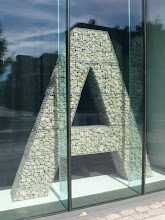131 Kingsland High Street
Turkish breakfast: Eggs, cheese, olives, tomato, cucumber, bread, butter, jam, honey and Turkish tea
Şömine is at the crossroads with Shacklewell Lane, so to get to it I have to walk past the end of Ridley Road market. It is another hot, sunny day and Kingsland Road is busy with shoppers. I almost feel that I am abroad as I overhear so many different languages and accents. The restaurant is nearly empty of customers, just a father and daughter at the table behind me. Two Turkish women sit at tables at the back of the place and make the flatbread for the day. I notice that they are open twenty four hours and that breakfast is served from two in the morning. I wonder if the customers then are getting up for a night shift, or on their way home after an evening out.
My tea arrives in a glass mug with four lumps of sugar. I drop three in. Its a golden brown colour and the sun streaming through the open windows makes it glow. The breakfast arrives. I like the way the slabs of butter are used to separate the runny honey and jam from each other, and from the cheese. I start with an olive, and wonder if there is a correct order in which to eat it all. I know that I will go from savoury to sweet as that is what I am used to. A steady stream of people are coming in, but most either want something to take away, or are staff. I think the shift must be about to change.

The windows are all wide open and as I lean my elbow on the ledge, I watch people standing just outside, waiting for the lights to change so they can cross the road. As I sit, I wonder if breakfast is the one meal that really defines us as a particular culture or country? I notice that I am the only English person in here, unlike last night when the only Turkish people were the staff. Is this because it is breakfast, or because Şömine, with its formica tables, is not deemed ‘restaurant’ enough for non-Turkish customers?

So, is breakfast a cultural signifier?
I suppose I, and many others in England, will often go out for a curry, a pizza, or some noodles, but more often than not going out for breakfast means a traditional fry up. Sausage, bacon, eggs and tomatoes, or maybe beans, with white toast and a cuppa. Perhaps, if you are more traditionally inclined, and not too squeamish, some black pudding also. Even I, with over twenty years of vegetarianism behind me, confess to sneaking a chunk off a friend’s plate in the not too dim and distant past, but then again I’m not your usual vegetarian. From builders’ caffs to gastro pubs the fry up is known as a hangover cure, the best way to start a day’s labour, and a great companion to the Sunday papers. But how English is a full English? Is it definably so? Well, as I eat my way through Hackney, I am starting to think that not only is a fry up significantly English, but that breakfast in itself might be the last remaining meal that retains some sense of cultural signification. We may be culinary explorers from midday onwards, but before then seems strictly fry up, cereal or toast, or perhaps a croissant or two, but that’s only from over the pond, so I'm not sure it really counts. Sticky rice or Bánh Mì? Ham and cheese? Cornmeal, oats, peanut and banana porridge? Olives, cheese and jam? No? I thought not.



No comments:
Post a Comment